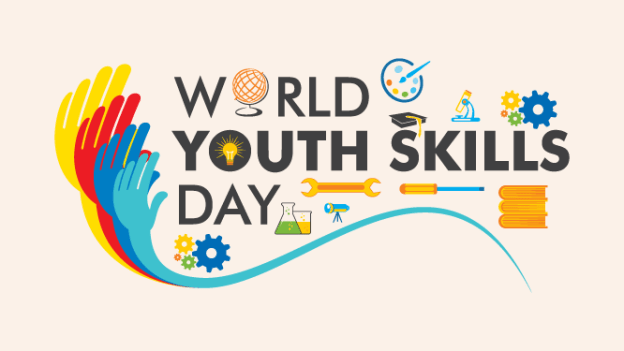Today, July 15, marks the eighth annual observance of the United Nations World Youth Skills Day. For Nigeria, this year’s observance could not be more apt, considering the fact that more than 60 per cent of the country’s working-age population is younger than 34. Unemployment for people aged 15 to 24 stood at 53.4 per cent in the fourth quarter of 2021, and at 37.2 per cent for people aged 25 to 34.
In 2014, the United Nations General Assembly declared 15 July as World Youth Skills Day, to celebrate the strategic importance of equipping young people with skills for employment, decent work and entrepreneurship. Since then, World Youth Skills Day events have provided a unique opportunity for dialogue between young people, technical and vocational education and training (TVET) institutions, firms, employers’ and workers’ organizations, policy makers and development partners. Participants have highlighted the ever-increasing significance of skills as the world is embarking on a transition towards a sustainable model of development.
We believe that over the past few decades, there has not been much attention paid to improving technical skills among Nigeria’s bulging youth population, contributing to the country’s high youth unemployment.
But for the engaging of the country’s youth population, technical skills are a sine qua non, just as it has proven to be in developed nations.
A country typically needs bricklayers, electricians, plumbers, operators of heavy machinery, carpenters, to name a few, in hefty supply to build its infrastructure. That sector of any economy constitutes a pillar that must be sustained.
That was the spirit that informed the annual observance’s declaration by the United Nations General Assembly as World Youth Skills Day, to celebrate the strategic importance of equipping young people with skills for employment, decent work and entrepreneurship. Since then, World Youth Skills Day has provided a unique opportunity for dialogue between young people, technical and vocational education and training (TVET) institutions, firms, employers’ and workers’ organizations, policy-makers and development partners.
World Youth Skills Day 2022 takes place amid concerted efforts towards socio-economic recovery from the COVID-19 pandemic that are interconnected with challenges such as climate change, conflict, persisting poverty, rising inequality, rapid technological change, demographic transition and others.
aYoung women and girls, young persons with disabilities, youth from poorer households, rural communities, indigenous peoples, and minority groups, as well as those who suffer the consequences of violent conflict and political instability, continue to be excluded due to a combination of factors. In addition, the crisis has accelerated several transitions the world of work was already undergoing, which add layers of uncertainty regarding the skills and competencies that will be in demand after the pandemic is overcome.
The United Nations and its agencies, such as UNESCO-UNEVOC, are well placed to help address these challenges by reducing access barriers to the world of work, ensuring that skills gained are recognized and certified, and offering skills development opportunities for out-of-school youth and those not in employment, education or training (NEET). During this Decade of Action for the 2030 Agenda, the full engagement of young people in global processes is vital to generate positive change and innovation.
In the words of UN Secretary-General António Guterres, “Young people are drivers of change and must be fully engaged in decisions affecting their future. Guided by the United Nations Youth 2030 strategy, I urge everyone to act for youth skills development as a priority, at the summit and beyond.”
There is a need for national consciousness to reverse the trend of neglect of technical institutions in Nigeria.
Sadly, perennial strike actions by teachers angling for better working conditions do not help to bridge technical skills deficit. There is a need for the federal and state governments to give attention to revamping technical skills among the Nigerians youth.





